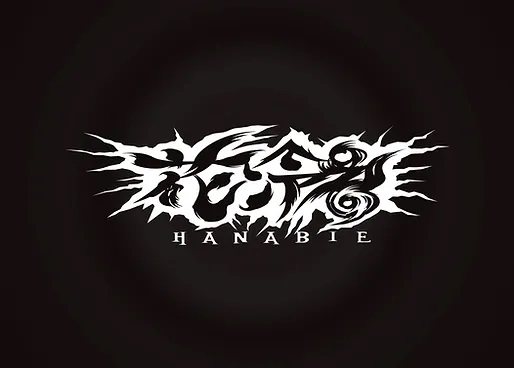I’m interested in the game, I guess mostly because of the hype. I enjoyed Skyrim and Diablo 1/2/4, and I suppose they’re somewhat similar to Baldurs Gate. Given that basic knowledge, is there a good change I’d like Baldurs Gate 3? Also, could I just jump into it without playing the first two?
Similar but dissimilar…
You can pick up 500tons of plates and forks like Skyrim. That’s partly a joke, but partly to say that it’s kinda similar environmentally. The world/environment has that sort of feel to it, but keep in mind that isn’t really open world environment, it feels like it, but it’s on rails like diablo is, so to speak. It’s kinda a cool balance between linear path and open IMHO. Similar environment to the diablo franchise, but with a bunch of Skyrim openness tossed in.
It’s a party based game… that parts ways entirely from both Skyrim and Diablo. You aren’t player one, you’re players 1-4… Do you go back far enough for might and magic? It’s got a lot of that to it. 4 person party, limited skills per member so you gotta manage the balance among the party, gotta consider how your party is physically arranged in a fight so the cleric doesn’t get squooshed… party mechanics that are absent in most of the genre. I love that it brought that back :)
The focus on loot is less… a lot less… one of the earliest party members you can pick up is an item sink that wants to be fed a high end magic item every couple days, so your best loot is subject to being little more than food. A little annoying but a neat dynamic. Your uberness is going to be determined more by attributes, skills, and spells than by what your gear looks like. It ain’t a loot fest at all :)
It’s got “romance” dialogue in camp, where you can affect the interpersonal relationships between party members, and you can have more than 4 in camp, on standby, so this gets to be kinda involved, I’m not a fan so I skip the camp stuff and just rest, can’t speak much to it tbh but they’ll get it on if you put the time in camp to do the relationship stuff.
There are a lot of choices in interactions, and they affect your reputation, and they can really affect quests and quest outcomes, and so far all I’ve seen is really good work by devs on not having different or odd mixes of choices result in any major borking of quests… you can take a quest from someone, slaughter the entire area they are in, and the quest will still complete (I didn’t do that… what? I don’t know what you’re talking about… how do you even know anything about it if nobody lived to say anything anyway…). You can be very whimsical and even deceptive with the quest entities, I dig it.
No real time combat. Walk through a door somewhere hostile and you get an immediate roll for initiative. That’s not terribly cool in terms of a diablo-skyrim-esque game, but it’s very faithful to its D&D roots :) it annoyed me at first, but it grew on me pretty quick when I realized that the game is actually trying to DM, and doing a pretty good job at it in my opinion.
It’s not really like anything, but it’s got some endearing qualities that are similar to a whole slew of other great games. Little bit of a whole bunch of stuff :) kinda worth a try for just about anybody I think.
When you’re done with this game, if you haven’t yet played the Divinity Original Sin games then I highly recommend them. I’d start with the newest, Divinity Original Sin 2, and then work backwards as desired.
This should tell you if you should get this game. Great review.
You can also stealth into encounters instead of just walking into them.
Casting minor illusion out of sight or beginning combat with a fireball is a great way to start a fight. You can also use the environment to your advantage. On a narrow walkway over a chasm? Misty step behind a group of enemies and use Thunder Wave to push them off the ledge. Or that giant chandelier hanging above multiple enemies will fall with one good crossbow shot. Just know if you’re a paladin, you can’t kill in a fight you started unless you’re an oathbreaker. You’ll need to use your big boy words first.
There’s also other environmental things you can use to your advantage. Some of the bridges and wooden platforms are rickety and can be collapsed by attacking the support. You can also set up your own “traps” by smashing water on the ground and electrifying or freezing it when enemies are on it. Same goes for greasing the floor, makes creatures slip but it’s also flammable. Sometimes I’ll try to set up potential traps in strategic locations by leaving wine/alcohol/alchemist fire on the floor so I can hit it with a fireball later on for a big boom… So much fun
You don’t need to have played BG1 and 2 to play this game. The game is turn based combat with great rich characters with awesome cinematics. It also has lots of choice and many different ways to play.
It also has great controller support for easy movement and camera control. But you can use mouse and keyboard too.
Quite possibly. The gameplay is quite different though. There more conversation trees and choices there have quite some impact on the story and outcomes.
The (combat) system will likely be something you will have to get used to compared to Skyrim and Diablo. It is based on Dungeons and Dragons 5th edition. So you will have to manage your actions each turn of combat in order to get the most out of your characters.
I highly recommend the game, for the reasons above and more.
Also, all text in the game is voiced. Not only the characters, even the narrator, which should make it more accessible for people who don’t have the patience to read through walls of text.
You can just jump in without playing the first two, for sure. But this is not like Skyrim or Diablo, as it uses a turned based action economy. When you attack or are attacked, the entire game stops, initiative is rolled, and every one in the fight takes their turn to perform their actions (and bonus actions). Everything. just. stops.
So this is not a hack and slash like Diablo or Skyrim, but it is an amazing game. I prefer games that support Real Time With Pause, where the battle can just carry out in real time unless you decide to stop time and micromanage your party, but in this game, every single step is micromanaged. The hype is well earned, and real. But if it’s not for you, it’s really, not for you. Hope you give it a try.
It is like xcom and mass effect has a child, or dragon age.
Good description. My sister said it looks like a mix of The Sims, LOTR, and D&D, which…isn’t that far off.
Honestly I’m glad they didn’t go through the rtwp route. I have the suspicion that it’s just really hard and not worth it to balance both playstyles, because it’s often both too easy yet tedious to frequently pause every combat but also too mentally taxing to keep track of the 10-50 person fight in realtime including gear switching, buffs, consumables, cooldowns, etc. Just my experience but I’d rather they just stick to one or the other and design around just that.
I would have thought too, but Owlcat (with Pathfinder) and Obsidian (with Pillars of Eternity II) did it admirably. Both made their game with real time with pause first in mind. I only play turn based (let me target my fireball properly, for crying out loud), and I couldn’t find any fault to those games. It just felt natural.
That being said, I’m glad Larian went all in on turn-based, because it gave us that awesome idea of being able to activate turn-based mode whenever we want. It adds tactics to stealing and infiltrations, that’s awesome.
Some of the fights can have a lot of verticality to them, and using the terrain to your advantage is very helpful. My cleric would let it rain on an enemy group, and my sorcerer would cast a lightning spell, electrocuting the whole bunch. My rogue would sneak in before the fight and get in position to push that archer or caster to their death. Things with so much depth are easier to execute with a round based system. It’s very much a game of chess, where you plan ahead and take advantage of enemy mistakes, and the two examples I just gave are on the level of a peasant like me. You can pull off some crazy shit in this game.
This game is extremely similar to Dragon Age Origins. The first one. I haven’t played any of the other ones in the series but I have played a lot of D&D 5e.
I agree, Dragon Age Origins was a masterpiece. Like BG3 it lets you pick an “origin” character and that would determine how NPCs in the game treated you. And they had choice and that effected how the game played out.
All those games share the same source (roleplaying), but occupy different niches. Diablo is a dungeon crawler, a roleplaying game where story and narrative arcs are less present, in favor of more combat. Skyrim is an action RPG, foregoing the most tactical aspects for some intense action, making it blends with the FPS genre. Baldur’s Gate is a CRPG (for classic rpg). It focuses on characters development and story. So, compared to the other two, expect less numerous but more tactical fighting (for the record, it’s turn based), more thinking, and way more story. What will feel familiar, though, is characters getting xp to level up and unlock new powers.
Just commented on another post, I knew nothing about BG or DnD before playing this game. It is deep and a tad confusing at first but it’s been a matter of days and I feel I understand the game now (though am sure there are deep depths to be explored). Don’t be intimidated by the system depth, it’s great fun to play
BG has nothing to do with Diablo.
If you like exploration (skyrim), tactical combat (Xcom), and RPG (narrative games where choices matter) then this is game is for you.








